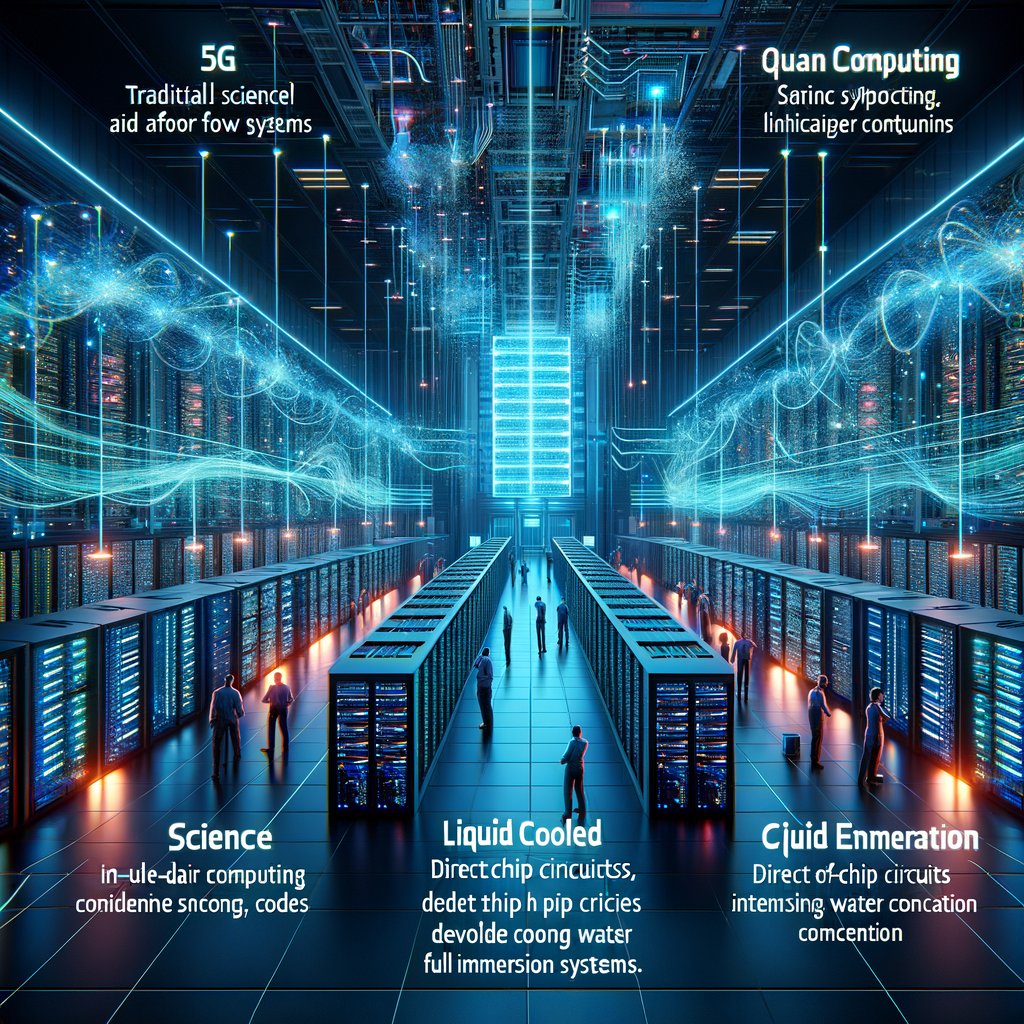Image created by AI
Innovations in Data Centre Cooling Systems Pave the Way for Advanced Computing
Data centres across the globe are facing unprecedented challenges due to the escalating heat generation from the use of 5G, AI, and the anticipatory needs of quantum computing technologies. Digital Parks Africa (DPA) is at the forefront of transforming data centre cooling systems to cope with these rising demands. Eckart Zollner, head of business development at DPA, has offered insights into the innovation and skill transformation currently underpinning this sector.
Traditionally, data centres relied heavily on air-cooling using chiller technologies like air conditioners or evaporative coolers that accounted for 30% to 40% of power consumption. Improvements to this involved leveraging underfloor airflow systems and cold aisle containment to enhance cooling efficiencies. However, as the density of silicon chip technology increases, thus producing more heat, the inadequacy of air cooling has catalyzed the need for better solutions.
The answer to this challenge lies in liquid cooling systems, which are heralded for their superior efficiency. Water and specifically created synthetic fluids serve as much more effective mediums for heat transfer, outperforming air significantly. These cooling technologies have evolved, with solutions such as water-cooled rear doors, direct-to-chip circuits, and liquid full immersion systems each handling different levels of heat load per rack.
Addressing the concerns about the water usage these systems entail, particularly in regions like South Africa where water scarcity is a concern, Zollner reassures that most liquid cooling systems employ a closed-loop mechanism. In this system, the water is recycled through equipment and cooled using a heat exchanger, thereby conserving precious water resources.
These innovations are not without their challenges, as they require a paradigm shift in the skills and knowledge of data centre personnel. Staff now need to be well-versed in fluid dynamics, pumping, and reticulation systems - a stark contrast to traditional air-based cooling systems knowledge.
Furthermore, looking towards the future, quantum computing - necessitating cooling to near absolute zero - will likely rely on the use of helium gas products. This exemplifies another leap in the sophistication and requirements of cooling systems.
DPA's narrative underscores a significant trend; data centres must adapt to contemporary and futuristic technologies that raise the bar for cooling systems. Consequently, not only will this incite innovation in greener, more efficient cooling solutions but will also engender a skilled workforce equipped to tackle the intricacies of these next-generation systems.










